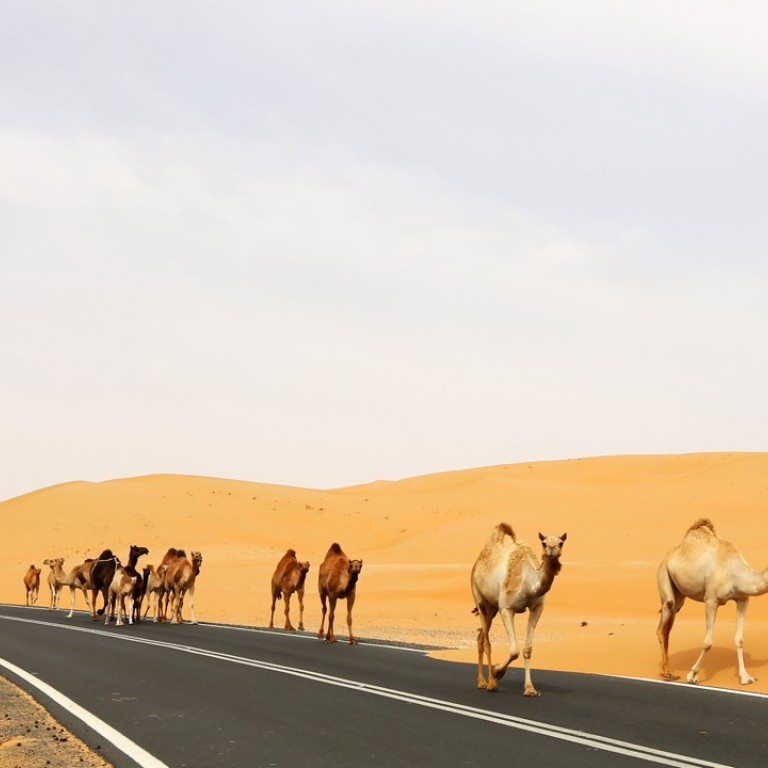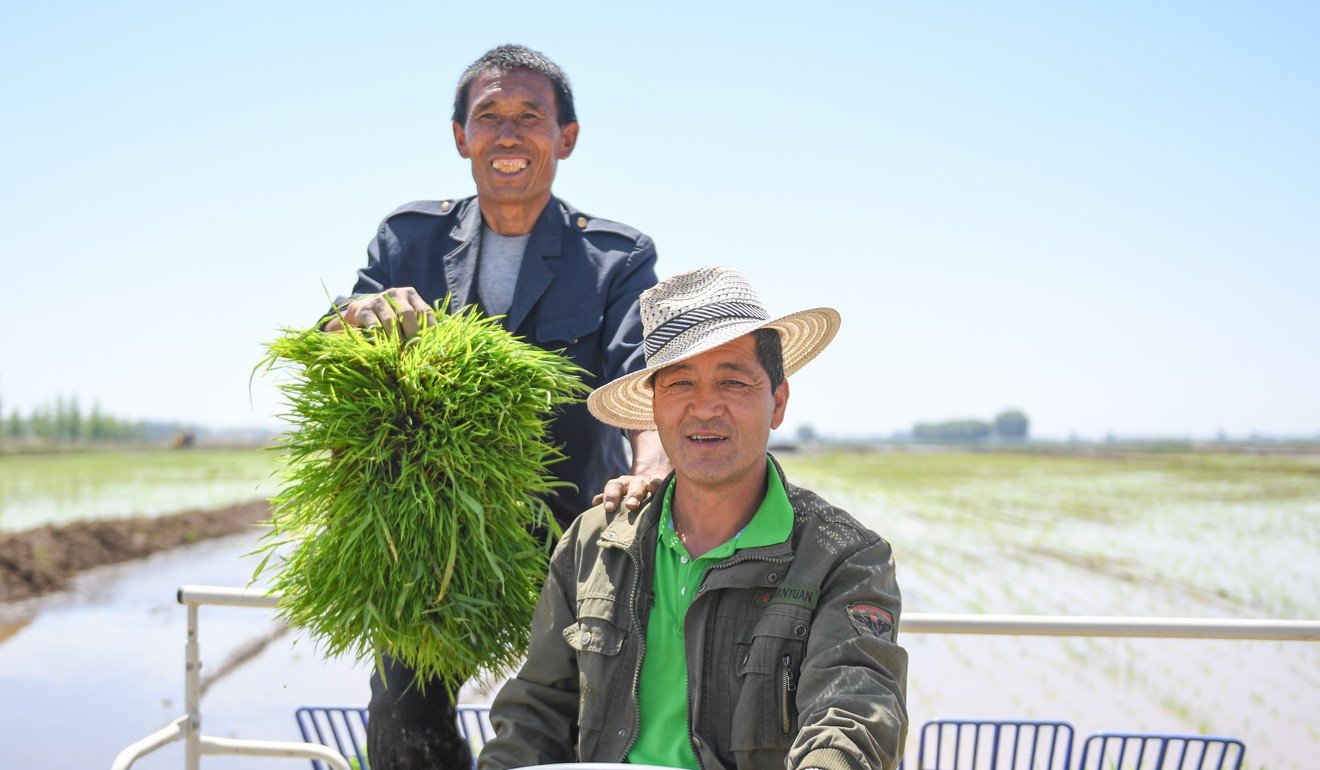
Coming to a plate near you soon? Rice grown by Chinese scientists using seawater in Dubai’s deserts
Successful harvest of salt-resistant strain raises researchers’ hopes that one day large swathes of the desert could be turned into paddy fields
Chinese scientists have successfully grown and harvested rice in the deserts of Dubai after developing a strain that allows the crop to grow in saltwater.
A team of scientists, led by China’s “father of hybrid rice” Yuan Longping, has already started growing the crop in diluted sea-water at home and is now bringing the technique to the Middle East, where fresh water is too precious to use for growing water-intensive crops.
Last week’s rice harvest, which had been planted in January on the outskirts of the city, far exceeded scientists’ expectations, according to a report by the state news agency Xinhua.

The high yield reported – 7,500kg per hectare compared with the global average of 3,000kg per hectare – has encouraged scientists to expand the project.
They now plan to set up a 100-hectare experimental farm later this year, put it into regular use next year and then start expanding after 2020.
Eventually, the report said, the goal is to cover around 10 per cent of the United Arab Emirates, which has a total area of 83,600 sq km (32,278 sq miles), with paddy fields – although details as to how this will be achieved have yet to be disclosed.
Xinhua said the Dubai venture is the result of a collaboration between China’s research centre into saltwater rice, based in the eastern port of Qingdao, with The Private Office of Sheikh Saeed Bin Ahmed Al Maktoum, a billionaire member of Dubai’s ruling family.
The two parties have also signed an agreement to promote seawater rice across the Arab world to reduce the risk of food shortages in the future.

While scientists in some countries where water shortages are a serious concern – such as Israel or Australia – have been developing desalination techniques to convert seawater for use in agriculture, China has been working to develop strains of salt-resistant rice for the past four decades.
Although it is not yet clear how the Dubai project will be able to secure enough fresh water to dilute seawater for large-scale rice cultivation, Chinese scientists have already started growing it closer to home on a commercial scale.
China has one million square kilometres of waste land – an area the size of Ethiopia – where plants struggle to grow because of high salinity or alkalinity levels in the soil.
If a tenth of this area was planted with saltwater rice, it could boost China’s rice production by nearly 20 per cent, producing 50 million tonnes of food – enough to feed 200 million people, Yuan told mainland media last year.
The project began in the 1970s when a researcher named Chen Risheng discovered a species of wild rice that grew near a mangrove forest in the southern province of Guangdong.
After four decades of cross-breeding and genetic screening, researchers had developed eight separate species but their yields remained too low to make widespread cultivation worthwhile.
But last year the team made a breakthrough by doubling the yield to more than 4.5 tonnes per hectare.
Last autumn the first salt-resistant rice, grown on a beach near Qingdao, made it into the shops.
As the South China Morning Post reported at the time one woman who had bought a bag of the rice found it was “very good”, adding that her boyfriend said it reminded him of the rice he had eaten in his home village as a boy.

